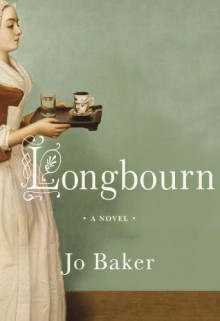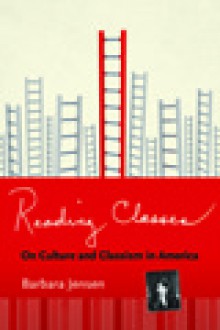
The story of Pride and Prejudice, but seen through the eyes of the hidden class, the servants in the Bennett household. If you are a dyed-in-the-wool P&P fanatic, this might just turn you off, because the characters in P&P are mere backstory here. In addition, it is a somewhat moody novel, even bleak or grim in places, without the cherry-on-top happy ending that we often crave, so bear that in mind. That said, I liked it a lot (and I am a Jane Austen reader, but not a fanatic) and am glad to have read it, and would recommend it.
Our hero is the Bennett's downstairs maid, Sarah, an orphan who chafes at her restricted life, and whose concerns are far more pressing than when the next ball might be. The servants have a whole world of their own "under the stairs". There is a hierarchy of servants, and they have their own spats, and secrets, as well as kindness and hope, and perhaps a bit of romance as well. But their days are long, unbearably long, and their labors are far more burdensome than the upper-crust Bennetts might realize. It was interesting to me, from a historical point of view, to see the amount of dirt and mess and muck and manure (lots of that) they had to deal with, while always appearing pristine, polite, and well-coiffed. The reader unfamiliar with what it takes to maintain an "aristocratic" home (though the Bennetts barely make the cut, as country gentry) will be surprised by the long and arduous daily tasks the servants must do, and always do invisibly, to keep the household running. There was a reason maids often died before age 30.
Our main character, Sarah, spends a lot of time complaining about her chilblains (blisters that arise when skin is exposed to extreme cold or heat). She is in charge of laundry, so her hands are constantly subjected to hot water and cold water, and hot irons and and cold air, and yet she must take care not to get any fluids from her chilblains onto the laundry. Then there's the wood to cut, the water to boil, the uniforms to starch and iron, the food to store and cook and serve and clean up after... This disconnect between the leisurely life of the Bennett sisters, who chat and read, visit with others, and play the piano, while changing clothes three or four times a day, and the stupefying struggle of their maids to just get through the workload of another day really highlights the difference in the classes. In some places I found Sarah to be a bit TOO modern in her thinking. By that I mean that most house servants in the Regency era knew they were servants and were, quite early on I imagine, disabused of any ideas of moving up in society. Sarah has a more modern outlook: she KNOWS she can be more. That said, the truth of the matter is, she probably cannot.
The main housekeeper, Mrs. Hill, (I loved this character) is stern but kind hearted, and (SPOILER ALERT) towards the end when Mr. Hill dies we discover just how kind-hearted she really was. She sees in Sarah the yearnings for a larger world, and tries to help her find some peace with her lot in life, as she herself has done. But in Sarah's eyes, Mrs. Hill has merely "settled" for less than she could have had, and Sarah refuses to do so. The reality was, in those Regency days, crossing "up" into higher levels of society was virtually impossible. Mrs. Hill found her love and her peace where she could.
There's a love interest for Sarah, who seems like a good hearted fellow, but he leaves, and while he is gone, there is an exotic footman she meets as well, who pursue her a bit. So, SORT of a romantic love triangle, but not really, because good guy comes back and footman graciously yields. (Through the footman's eyes we see how narrow Sarah's life experience really is.) Honestly the romance was far less interesting to me than the feeling of peeking behind the kitchen door to see what was REALLY going on in the gentry homes of that era, all across Europe.
Recommended. Conservative parents should be aware of the presence in the novel of a brief mention of a loving, committed homosexual relationship, and an out of wedlock pregnancy. Makes for great conversations with your teens!

 Log in with Facebook
Log in with Facebook 







